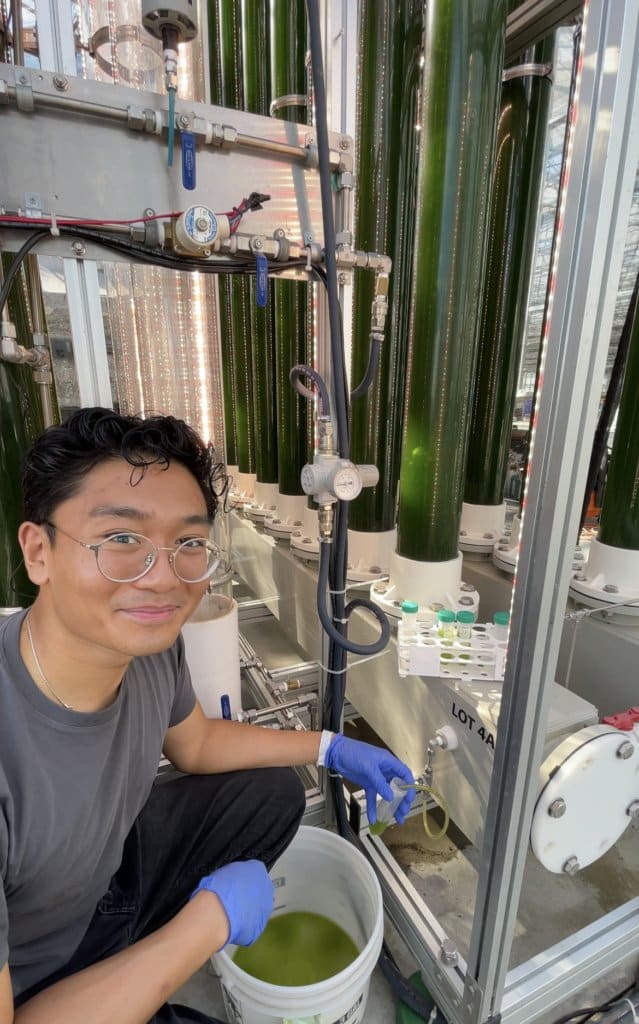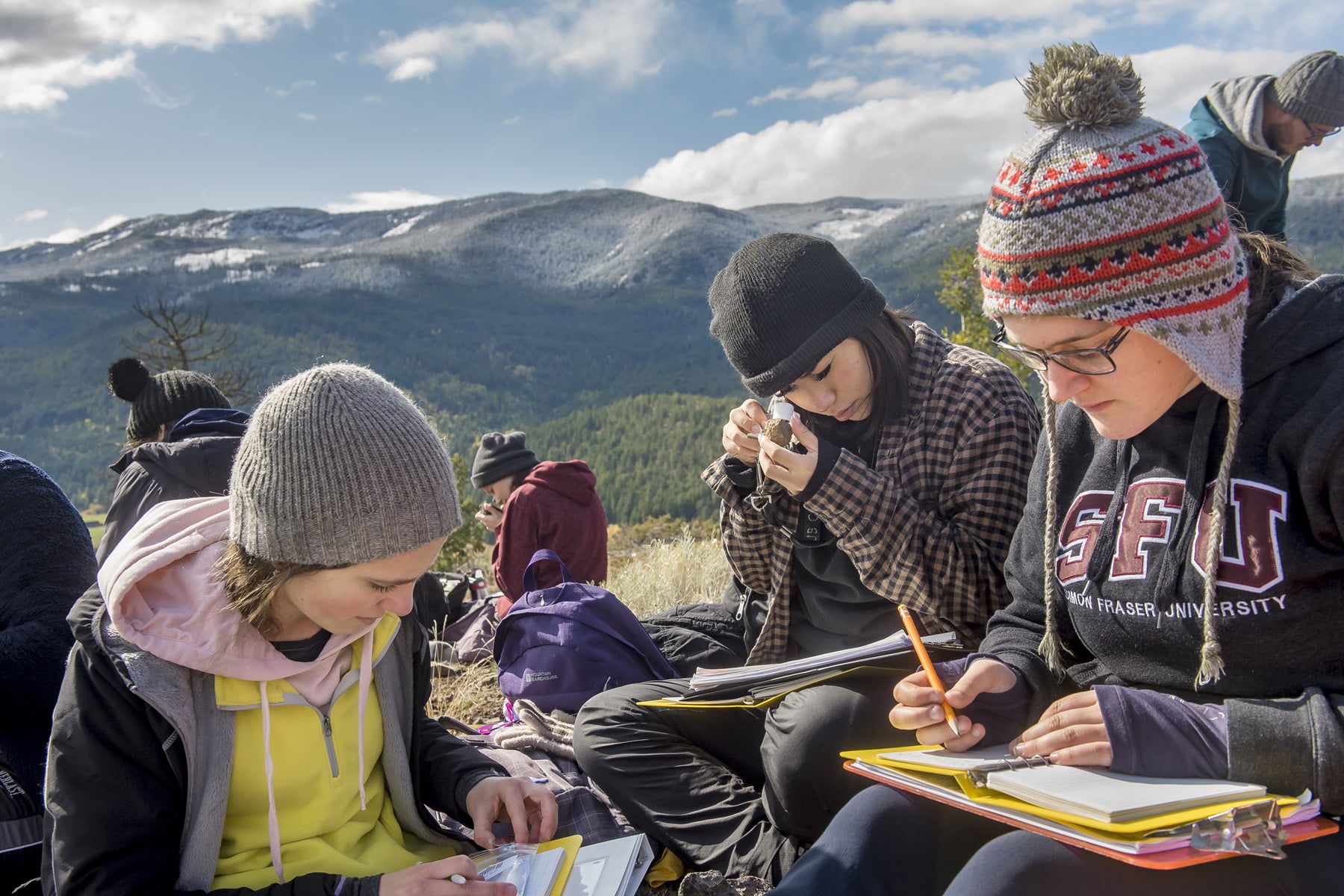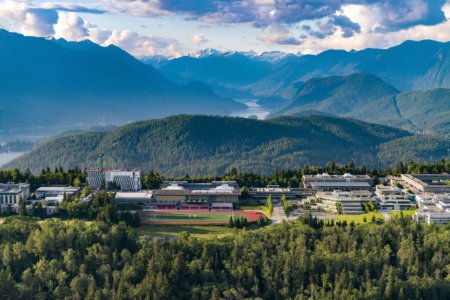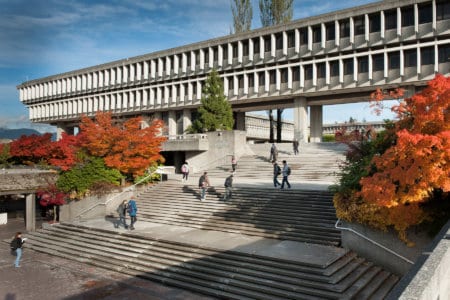The impact of a Simon Fraser University education can be seen in all corners of the globe. For 15 of the last 16 years, it has ranked as Canada’s #1 comprehensive university with over 180,000 proud alumni making strides in their careers and lives in an ever-changing and challenging world. Nowhere is this truer than in the success stories of its Faculty of Environment graduates.
Using the knowledge, skills and experiences they gained from one of Canada’s fastest-growing research institutions, they’re tackling challenges related to the complex relationships between humans and their built and natural environments from the past to the present. To learn more about the transformative impact of Simon Fraser University, hear from the graduates themselves:
Paolo Orosa (BSc in Environmental Science) credits strong foundation in science to empower him to tackle climate crisis
When Paolo Orosa first embarked on his higher education journey, he was uncertain about his future. That is, until he saw his calling crystallise when he discovered a passion for the natural sciences and a desire to address the climate crisis. This led him to pursue a BSc in Environmental Science, a decision he now considers pivotal to his career.

Source: Paulo Orosa – Simon Fraser University
The programme’s interdisciplinary nature allowed Paulo to explore a wide range of subjects, from ecology to geography. He felt empowered to create a more sustainable future.
Today, as a Project Lead and Biotechnologist at ONT Holdings Inc., Paulo finds himself at the forefront of Carbon Dioxide Removal (CDR) Technology, working to remove greenhouse gas emissions. It’s an emerging field, but he feels confident thanks to his BSc degree.
“My background in academic research proved invaluable in orchestrating research trials for my company’s products,” he says. “Skills honed in analysing technical papers during my academic years aided in navigating government regulatory frameworks. The computational literacy fostered through learning GIS software empowered me to embrace new software independently, even delving into self-taught coding in Python and R.”
To those high school students hesitant about entering the environmental field, Paulo offers words of encouragement. “The environmental field offers diverse opportunities, from research, policy, data analysis to project management and more. You can work in various settings, independently or collaboratively,” he says.
Mirtha Gamiz (BEnv in Resource and Environmental Management) matches passion for cycling with interest in sustainability to create change
In 2019, Mirtha Gamiz earned her Bachelor of Environment (BEnv) in Resource and Environmental Management (REM) from Simon Fraser University. Today, as a new mobility planner at TransLink, Metro Vancouver’s transportation network, she plays a crucial role in shaping sustainable transportation solutions.
To Mirtha, it was the programme’s comprehensive approach to REM that stood out to her. “The programme allowed me to explore sustainability and environmental science while providing the flexibility to focus on specific areas like energy policy or environmental law, if I wanted to,” she says.

Source: Mirtha Gamiz – Simon Fraser University
Mirtha’s journey into sustainable transportation began with a co-op job placement. Her passion for cycling led her to BEST (Better Environmental Sound Transportation), a local nonprofit, where she started as a summer employee working with their Bicycle Valet programme. Then, she delved into the emerging field of integrated transportation systems, completing a capstone course project on the topic. Mirtha was invited to present her capstone project research to students from the Sustainable Transportation course. This endeavour caught the interest of a transportation planner at TransLink who was also invited to conduct a presentation to the same course and this ultimately paved the way for her career in sustainable transportation.
She credits her work for the REM programme and the Co-op programme for equipping her with soft skills such as policy analysis, community engagement, and an understanding of the complexities of reconciliation efforts with First Nations. These skills have proven just as essential in her work, where she now bridges the gap between sustainable transportation and policy development.
Jordan Tam (BSc in Physical Geography) values the interdisciplinary training that continues to shape how he advances green energy solutions
Jordan Tam was drawn to the BSc in Physical Geography because of how customisable it was. He appreciated being able to explore diverse subjects beyond his comfort zone. This exposure showed him the intricate web of connections within the environmental sector, a crucial insight that continues to shape his work today.

Source: Jordan Tam – Simon Fraser University
“To satisfy programme requirements, I recall getting the opportunity to take courses in statistics, archaeology and biology in addition to the typical natural sciences offerings,” Jordan says. “I felt these classes complemented my learning. Instructors were very passionate about the material and classes had a great combination of in-field, laboratory and classroom learning.”
All of this set Jordan up for a role as a qualified environmental professional (QEP) in positions of different levels in government and in the private sector. The Environment Cooperative Education Program was another game-changer. “I found that the programme positions students to be successful after graduation. I made career connections while gaining valuable work experience, and my first role after graduating was with one of my previous co-op employers,” says the natural resource specialist with BC Hydro, a provincial Crown corporation that generates and delivers electricity to 95% of the population of B.C. and serves over five million people.
Jordan’s journey from a curious student to an accomplished natural resource specialist exemplifies the endless possibilities within the green sector. With climate change’s urgency driving an increased focus on the environment, Jordan believes today’s graduates have more doors open to them than ever before.
“A career in ‘environment’ has so many opportunities that you will never feel boxed into one pathway. There are many chances to collaborate with industry, regulators, indigenous nations and many other parties through the course of your careers,” Jordan says.
Click here to learn more about the Faculty of Environment at Simon Fraser University
Follow Simon Fraser University on Facebook, X, Instagram, YouTube, and LinkedIn













